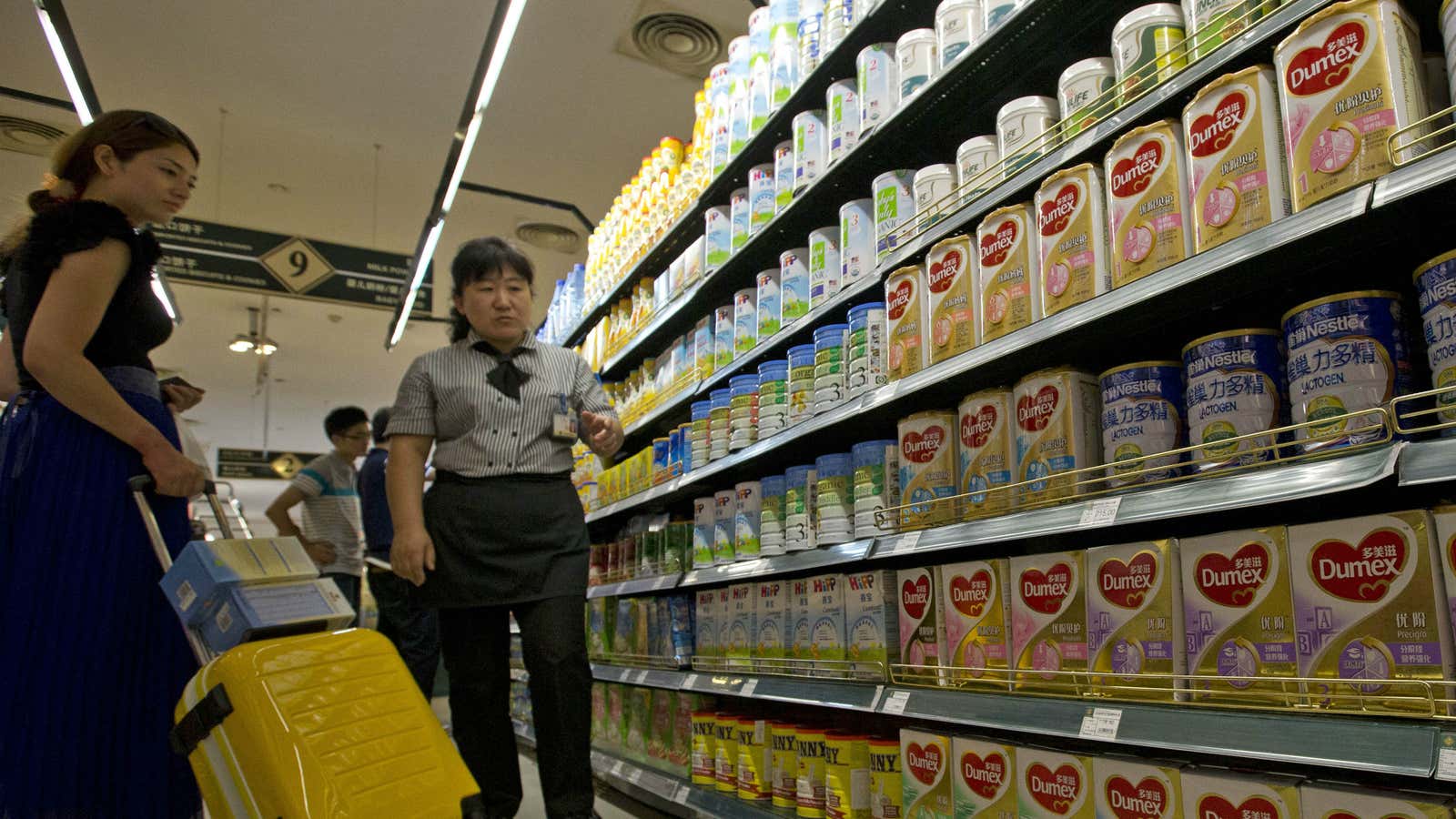Beijing is on a baby-feeding kick. After laying down new strict rules last week about which foreign companies can import baby formula to China, the government said it plans to go one better—by manufacturing formula based on Chinese women’s breast milk, all by itself.
The government is spending $1.6 million on a project to try to replicate Chinese mothers’ milk, Zhang Xiaohua, an official with the Beijing Science and Technology Commission, said this week. The project will “study the ingredients and active constituents of the breast milk of Chinese mothers and set up a breast milk database for developing the formula,” the People’s Daily reported. (The project will also “boost” China’s domestic dairy companies, the state-run paper said.) Until now the domestic formula makers have been relying on World Health Organization guidelines for what should be in infant formula.
While early versions of commercially manufactured infant formula were often fortified cow’s milk, modern formula contains a number of ingredients that attempt to mimic ingredients found in breast milk—but it’s unclear how effective and well-absorbed these ingredients are.
China is by far the largest market for infant formula, and for the fastest growing segment of the market—“toddler milk” for older children. Chinese parents bought over $15 billion in milk formula last year, in part because the country has some of the lowest rates of breastfeeding of babies under six months, at 28%, compared to a global average of 40%.
Aggressive marketing by formula makers is a big reason for that low rate. Chinese women work outside the home about as much as their counterparts in the US and Europe, and less than them in urban areas. Chinese authorities made a push to encourage breastfeeding last year, but formula sales area still predicted to grow to $22 billion by 2015, according to Euromonitor.
But much of China’s baby formula comes from overseas, after a Chinese manufacturer produced formula in 2008 that was laced with melamine which killed six babies. So the government’s new initiative seems like a clear attempt to give the domestic industry a fresh boost.
